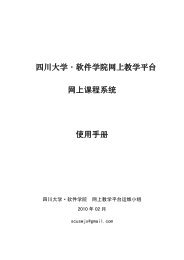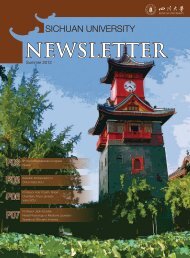Reflexive inquiry in organizational research: Questions and ...
Reflexive inquiry in organizational research: Questions and ...
Reflexive inquiry in organizational research: Questions and ...
You also want an ePaper? Increase the reach of your titles
YUMPU automatically turns print PDFs into web optimized ePapers that Google loves.
992<br />
Human Relations 56(8)<br />
deconstruct other texts or study how others construct reality, while ignor<strong>in</strong>g<br />
my own place <strong>in</strong> the construct<strong>in</strong>g process. Researchers engage <strong>in</strong> a number of<br />
strategies to avoid ontological oscillation, <strong>in</strong>clud<strong>in</strong>g: bann<strong>in</strong>g it (Steier, 1991),<br />
writ<strong>in</strong>g from a meta-level <strong>in</strong> which the author’s view is taken at face value<br />
(Hassard, 1994; Woolgar & Ashmore, 1988), or ‘just writ<strong>in</strong>g’ (Latour, 1988).<br />
Each of these approaches is <strong>in</strong> danger of fall<strong>in</strong>g back <strong>in</strong>to an unreflexive ‘flat<br />
naturalism’ (Pels, 2000) <strong>in</strong> which an account is taken as representative or<br />
believable. Weick (1995) suggests we should just accept ontological oscillation<br />
as a necessary part of sense-mak<strong>in</strong>g because <strong>in</strong> act<strong>in</strong>g with<strong>in</strong> multiple<br />
realities, no one can be an ontological purist. This form of ontological oscillation<br />
or gerrym<strong>and</strong>er<strong>in</strong>g is problematic to some reflexive scholars because it<br />
privileges be<strong>in</strong>g-realism <strong>and</strong> the author (Chia, 1996b): a case of ‘do as I say,<br />
not as I do’. Alternatively, if we challenge our own <strong>in</strong>tellectual production <strong>and</strong><br />
draw attention to the otherness of our own texts, we can end up with debilitat<strong>in</strong>g<br />
self-reference as we go round <strong>in</strong> ever decreas<strong>in</strong>g circles try<strong>in</strong>g to expla<strong>in</strong><br />
why someth<strong>in</strong>g is unexpla<strong>in</strong>able or has no objective mean<strong>in</strong>g. As Samuels<br />
(1991: 512) iterates:<br />
To question the foundations of confident knowledge is to question the<br />
foundation of the knowledge taken confidently that enables us to<br />
question the foundations of confident knowledge!<br />
How do we address this issue For those who want to <strong>research</strong> the lived<br />
world <strong>and</strong> make a mean<strong>in</strong>gful contribution, how can we do so <strong>in</strong> a selfexemplify<strong>in</strong>g<br />
way without fall<strong>in</strong>g prey to <strong>in</strong>f<strong>in</strong>ite regress or ontological oscillation<br />
What are the possibilities for reflexive <strong>organizational</strong> <strong>research</strong><br />
At the risk of be<strong>in</strong>g criticized as unreflexively privileg<strong>in</strong>g a theoretical<br />
st<strong>and</strong>po<strong>in</strong>t, I suggest that radically reflexive <strong>research</strong>ers engage <strong>in</strong> at least one<br />
self-referential loop by acknowledg<strong>in</strong>g <strong>and</strong> <strong>in</strong>terrogat<strong>in</strong>g the impact of their<br />
own ontological <strong>and</strong> epistemological assumptions on their <strong>research</strong> strategy.<br />
They do not do so to privilege their position, but to ensure that their <strong>research</strong><br />
has an <strong>in</strong>ternal logic <strong>and</strong> to emphasize its situated nature. This means reveal<strong>in</strong>g<br />
how our <strong>research</strong> is a narrative construction with its own discursive rules<br />
<strong>and</strong> conventions, <strong>and</strong> is open to scrut<strong>in</strong>y <strong>and</strong> different <strong>in</strong>terpretations by<br />
readers. Researchers favor<strong>in</strong>g deconstructionist approaches may adopt a<br />
‘suspicious’ stance, unsettl<strong>in</strong>g the underly<strong>in</strong>g assumptions <strong>and</strong> conventions<br />
of their <strong>research</strong> paradigm <strong>and</strong> practice, <strong>and</strong> articulat<strong>in</strong>g the <strong>in</strong>herent<br />
tensions <strong>and</strong> opportunities of these assumptions. From a constructionist<br />
perspective, <strong>research</strong>ers recognize the <strong>in</strong>tersubjective nature of their <strong>research</strong><br />
<strong>and</strong> explore how mean<strong>in</strong>g – both <strong>organizational</strong> <strong>and</strong> the <strong>research</strong> account<br />
itself – are constructed between <strong>research</strong> participants. Some <strong>organizational</strong>


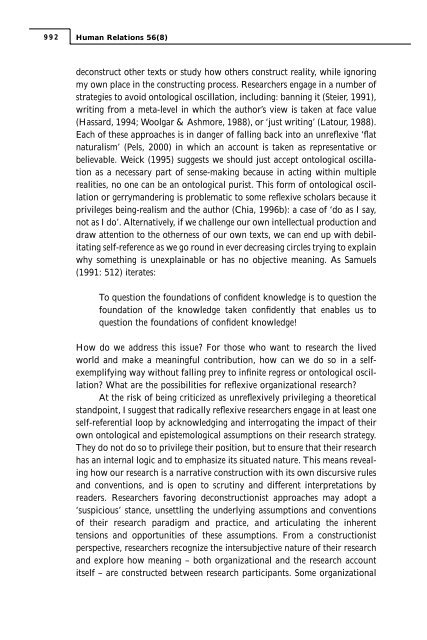

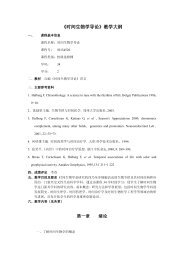
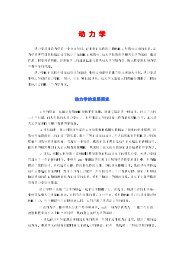
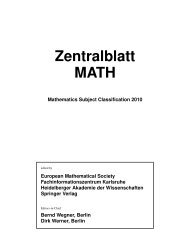
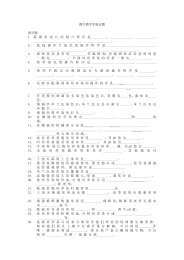

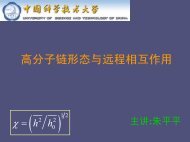



![第10 ç« æ¢ç弯æ²åºåMPa 30 MPa 36 kN/m 5.4][ = q = ][q](https://img.yumpu.com/29939822/1/184x260/c10-c-aeca-1-4-aeaampa-30-mpa-36-kn-m-54-q-q.jpg?quality=85)

